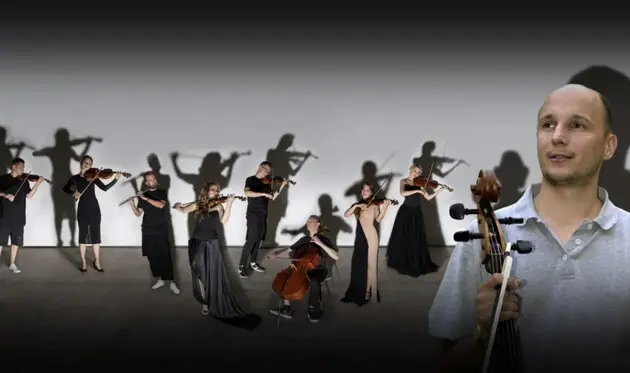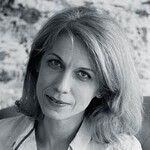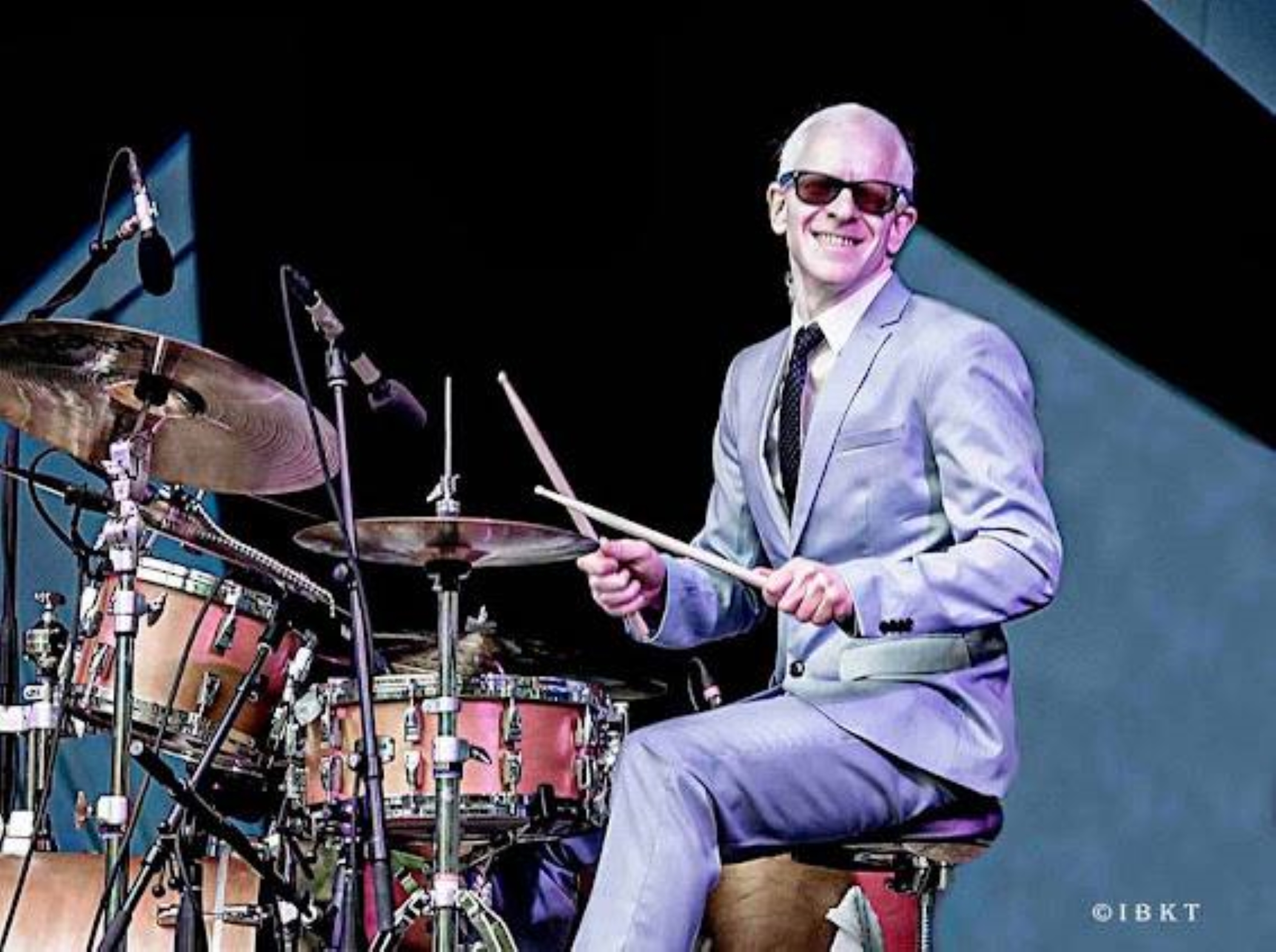Jörg Zwicker and Yogev Shetrit Trio: Star Guests of Bouquet Kyiv Stage

On 15-18 August 2024, St. Sophia of Kyiv will host the seventh annual Bouquet Kyiv Stage high art festival, initiated and organized by the Dom Master Class cultural center. This year's festival will traditionally bring together Ukrainian visual art, music, theatre, cinema and discussions on topical issues. Over 40 artistic events will take place during the four days of the festival, including a bunch of concerts of classical, jazz, and electronic music.
Among the foreign participants of this year's festival are the outstanding Austrian cellist Jörg Zwicker, who will perform with the National Ensemble of Soloists "Kyiv Camerata" and the Israeli jazz band Yogev Shetrit Trio will perform at St. Sophia of Kyiv.
On 17 August, three concerts will take place on the territory of St Sophia of Kyiv: Jörg Zwicker with the National Ensemble of Soloists "Kyiv Camerata" will perform at 15.30 and 19.00, and Yogev Shetrit Trio — at 20.30.
Especially for ZN, exclusive interviews with foreign guests of the festival, who, through their presence, performances, and masterclasses, have a sincere desire to support Ukrainians.
Jörg Zwicker: “I want to bring to Kyiv - my love, my music, my respect and my solidarity”
Jörg Zwicker, an Austrian cellist, conductor, music teacher and lecturer, founded the world-famous professional baroque orchestra Capella Leopoldina. For almost 30 years, Jörg has been teaching at the University of Music in Graz and at the Department of Ancient Music at the Vienna Private University. Jörg Zwicker also conducts masterclasses all over Europe, and this time he will come to Kyiv to give his class to our Ukrainian musicians.
Drawing on his 40 years of experience on stage, extreme sports and specialized education (Jörg is also an experienced mental coach), he coaches professional musicians and athletes to achieve peak performance, overcome stage fright and focus.
Jörg has visited Ukraine many times since the 1990s. The last time was in mid-February 2022, and he was due to come to Ukraine again on 24 February
Jörg, was the last time you visited Ukraine a couple of weeks before the war??
Last concert together was in mid February 2022. On February 24th, I had booked my next flight. I got the news about the Russian invasion on my way to the airport.
Each time I have been in Kyiv I so enjoyed my stay, cause I felt so welcome here in this wonderful city. There are a lot of fantastic musicians, and some organizations (like Open Opera Ukraine, Vere Music Hub) that do such a fantastic job for culture and the people here.
What motivates you to go to a country at war? What is your mission in this regard?
I can’t stop appreciating what you all do there for culture in such difficult circumstances. In the West we can donate money, organize benefit concerts, collect generators and clothes for winter. But I realized how important it is to give solidarity, to show that we stand together, that we don’t forget what happens in Ukraine. And this I can do the best with coming to Ukraine. I am a musician, and music is connecting people, giving hope and belief. This I want to bring to Kyiv: my love, my music, my respect and my solidarity.
How has the understanding of the war changed over these almost three years of the full-scale invasion into the sovereign country in the east part of Europe? What should people in Western Europe, in Austria in particular, understand about this war today? Does it feel like a common war?
My personal life changed completely with this war, priorities in my life changed radically. My generation never experienced a situation of war — and so some people under 60 do not (enough) appreciate the meaning of peace, freedom and democracy. That's why they do not understand what is going on here, just see the consequences of inflation (what of course is an existing problem for some poor people here as well) and disadvantages for Europe because of the sanctions on Russia. In my eyes many people in the West are just scared to lose a part of their comfortable and luxurious used life.
On the other hand I met such a big group of fantastic humans that selflessly helped so much (and still do) in many different ways. They understood that help is needed - and that we are able to give support! For some the war is still very far away, others realize that it also concerns us in Europe as well (and will concern even more, if Ukraine would lose this war).
Cause of my contact to many Ukrainians in Ukraine and in Austria I also see a lot of these „hidden" problems, such as the discussions about language, about defending country or flee to other land, inner familiar splitting cause of Russian/Ukrainian, discussions about names, hope vs. disappearing perspectives here and there. About these kinds of problems no news channel is talking.
In autumn I will start a series of concerts with a friend of mine (also a cellist), who has a similar situation with Jerusalem right now, where he has frequently made concerts for years. In these lecture recitals we play some pieces for two celli and in between we talk about exactly these experiences, about the stories, fears, problems and thoughts of inhabitants from Kyiv and Jerusalem.
What are your musical preferences in general? Who are your favorite composers and why?
I grew up in the countryside with a lot of Austrian original folk music and folk dancing and sang in a choir till I was 20. This helped me a lot in my job as a professional musician. Cause of my father, who had a lot of good recordings of Harnoncourt, Gardiner a.o., I got interested in Early Music (Early Music includes medieval music and music of the Renaissance). At age of 15 I became a private student of Nikolaus Harnoncourt (Johann Nikolaus Harnoncourt was a prominent Austrian conductor, known for his Historically informed performances. He specialized in music of the Baroque period; researcher of ancient music, teacher), with this motivation I specialized in Historically informed performance practice and of course Bach, Handel or Monteverdi became my favorite composers in my own concerts. But I also like to listen to good Jazz or Pop-Music (for example I am a big fan of Queen).
What pieces will you play for the Ukrainian audience?
For the concert with "Kyiv Camerata" I chose a mixed program of Early Music in the first part, and contemporary music that is based on Early Music in the second part (in the programme of the concert masterpieces of Jean Fery Rebel, Henry Purcell, Georg Philipp Telemann, Richard Dünser, Peter Warlock Johann Sebastian Bach, Max Reger). I think this could be an interesting mixture and I am so looking forward to working with great colleagues from "Camerata".
What do you think is the power of art in times of catastrophes such as war?
Art and culture are the soul of a country. As we understand, Putin wants to delete the Ukrainian soul, erase the Ukrainian culture.
Art and especially music also has such a power to give consolation as well hope, belief and define identity. It is the language that directly goes to the hearts and souls of people, especially when they are wounded. Making music brings people together in peace!
The concerts are supported by #UkraineOfficeAustria and the Embassy of the Republic of Austria in Ukraine in cooperation with Open Opera Ukraine and Vere Vusic Fund.


Yogev Shetrit: “With my music I try to give people some good moments they can enjoy to help them keep on living”.
Yogev Shetrit, a world-renowned composer and drummer, visits Ukraine for the first time at the invitation of Bouquet Kyiv Stage. Shetrit was the founder and member of the famous worldwide Coolooloosh band. Shetrit has performed with notable artists, including Chuchito Valdez, Tia Fuller, Arnie Lawrence, Paulo Morello, & Kevin Mahogany.
Shetrit, a composer at heart, created Yogev Shetrit Trio in 2016 to play his original compositions. Since then, the Yogev Shetrit Trio has performed in over 30 countries at some of the largest festivals and venues worldwide, including The International Panama Jazz Festival and The Kennedy Center (Washington, DC) and more.
Shetrit’s music contains original compositions that elegantly fuse traditional North African music, Gnawa, Andalusian music from his Moroccan heritage, along with contemporary Jazz and Mediterranean music.
What 5 words do you associate with modern Ukraine?
The words I connect with modern Ukraine are resilience, showing its ability to overcome challenges; fight, representing its struggle for independence; freedom, symbolizing its pursuit of democracy; together, reflecting the unity of its people; culture, highlighting its rich heritage; and strength, demonstrating its overall determination.
In your opinion, what is the power of art in times of catastrophes such as war?
Art keeps us going through difficult times. It gives us the strength and hope we need to face challenges like war and crisis. Through art, we can express our deepest feelings, share our thoughts, and celebrate our love for life. It helps us stay resilient and connected to what truly matters.
What motivates you to go to a country where war is raging? What is your mission in this case?
I come from a country that goes through constant conflict and I know how important it is to keep going, to continue living; the fact that this festival happens during the war shows your strength and will for life. This makes our countries similar. I do believe in the strength of art especially during hard times. With my music I try to give people some good moments they can enjoy to help them keep on living. This is my mission. I have a composition called 'Hopes' that helps people keep alive and give them hope.
What are your expectations from participating in Bouquet Kyiv Stage 2024?
I am honoured to participate in the festival. I would love to play my music in this beautiful great city. I look forward to meet artists from different countries and cultures. And I am keen to hear Ukrainian folk music. I heard folk songs, they are amazing. I love contemporary music as well, the Ukrainian group Okean Elzy, for example. They are amazing, so talented. I just love their music.
Israel has been accustomed to living on the brink of war and peace. What skills should Ukrainians develop from Israel’s experience?
Thank you very much. That's a difficult question. I think that the most important thing is to stay human, no matter what, support each other, don't abandon hope and keep going.

The concert will be held with the support of the Embassy of the State of Israel in Ukraine.
Read this article in Ukrainian and russian.
Please select it with the mouse and press Ctrl+Enter or Submit a bug













 Login with Google
Login with Google